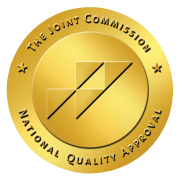What Is Emotional Intelligence?
Understanding the profound impact our emotions have on our lives is always fascinating. They are the threads that weave through the tapestry of our lives, coloring every experience and shaping who we are at our core.
They reveal our deepest truths, helping us understand our vulnerabilities, joys, and fears. Our ability to embrace and appreciate our emotions with courage and compassion truly determines the depth of our human experience. Emotions are not to be suppressed or ignored but to be embraced as valuable guides on our journey. Understanding emotional intelligence is the key that unlocks the door to understanding and managing these powerful forces within us.
What Is Emotional Intelligence?
Emotional intelligence (EQ or EI) is the ability to understand and manage your emotions to communicate effectively, empathize with others, relieve stress, and overcome challenges. Dr. Daniel Goleman, among others, has contributed significantly to our understanding of emotional intelligence by delving into two crucial facets: interpersonal intelligence, which focuses on our ability to perceive and respond to others’ emotions, and intrapersonal intelligence, which revolves around self-awareness and understanding our values and beliefs.
Interpersonal intelligence: A person’s ability to detect and respond to the mood, motivation, and desires of others.
Intrapersonal intelligence: A person’s ability to be self-aware and attuned to their values, beliefs, and thinking.
The Value of EQ
Developing emotional intelligence is a game-changer in both personal and professional spheres. It fosters meaningful connections with others, fuels success in work and education, and helps us steer through stressful situations with grace and resilience.
EQ emerges as an essential leadership skill in the workplace, fostering improved communication, problem-solving, and management. It allows individuals to fully understand another’s perspective even when it contradicts one’s opinion.
Signs of Emotional Intelligence
The four primary attributes of emotional intelligence include self-awareness, self-management, social awareness, and relationship management.
Demonstrating empathy, taking responsibility for mistakes, recognizing personal strengths and limitations, and effectively expressing ourselves are hallmarks of emotional intelligence.
The key signs of emotional intelligence include:
- An ability to show empathy towards others
- Accepting responsibility for mistakes
- An understanding of personal strengths and limitations
- Ability to express oneself clearly
- Managing difficult situations successfully
- Self-confidence
IQ vs. EQ
The intelligence quotient (IQ) measures your ability to solve problems, think logically, and communicate complex ideas. While IQ refers to intellectual capacity, EQ measures an individual’s social and emotional competencies. Some experts believe EQ is more important than IQ and is essential for success.
Emotional Intelligence and Mental Health
High levels of emotional intelligence are associated with positive mental health and reduced anxiety and depression. EQ helps us grasp potential stressors. In the case of anxiety, EQ can reduce anxiety by making the world less threatening and allowing them to return to a calmer state more easily. A person suffering from depression can maintain their ability to fully process painful losses by learning to acknowledge their emotions.
Emotional Intelligence and Relationships
In relationships, emotional intelligence is the cornerstone of authentic and meaningful connections. It allows us to embrace our vulnerabilities and hold space for others to express theirs without judgment. We can listen with empathy and respond with compassion, fostering a safe and nurturing environment where trust can grow.
At the heart of emotional intelligence lies the power of self-awareness, which helps us recognize our emotional triggers and patterns. This awareness empowers us to pause and reflect before reacting, fostering healthier and more constructive responses to our emotions and those around us. Understanding our emotional landscape allows us to communicate more effectively, conveying our thoughts and feelings with clarity and openness.
As we journey further into emotional intelligence, let us embrace its profound implications for our lives, hearts, and minds. Understanding and nurturing our EQ allows us to chart a course toward a more fulfilling and connected existence.
Develop Emotional Intelligence at Lido Wellness
At Lido Wellness in Newport Beach, we help people journey towards cultivating emotional intelligence and nurturing their mental health. Our outpatient mental health services offer a unique opportunity to foster EQ in a supportive and flexible setting.
Through outpatient care, you can develop a deep understanding of your emotions, build resilience, and forge meaningful connections while maintaining your daily life’s comfort and familiarity.
Our compassionate team of professionals is dedicated to walking alongside you, empowering you to communicate authentically and navigate life’s challenges with grace. Together, we can unlock the profound power of emotional intelligence and embark on a path of healing and personal growth. Your journey begins here.




